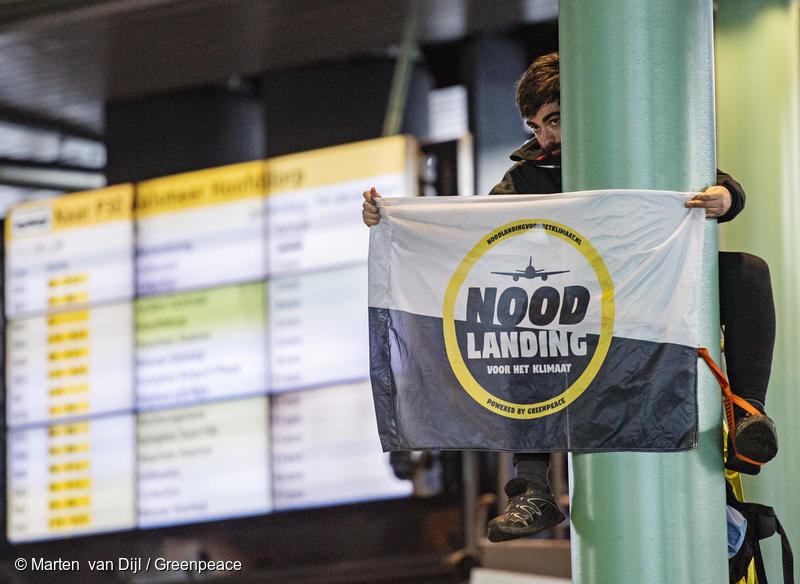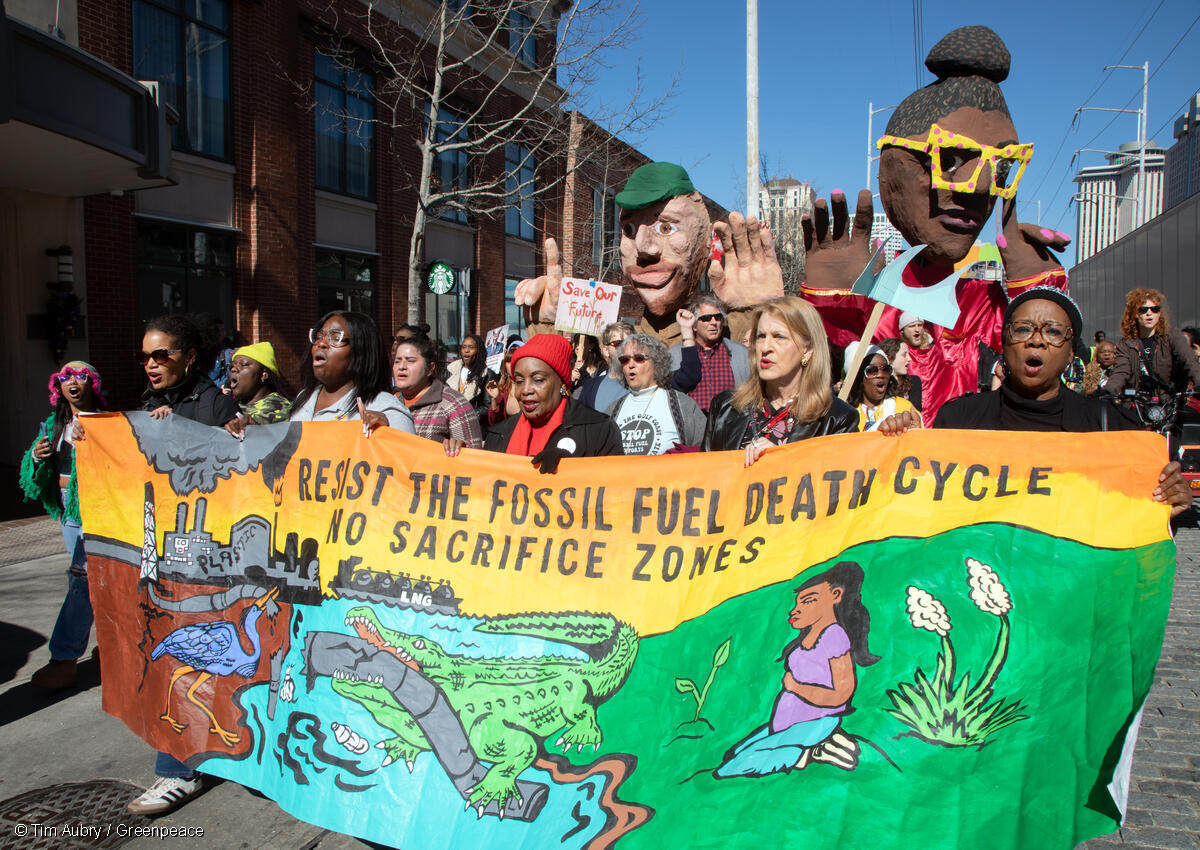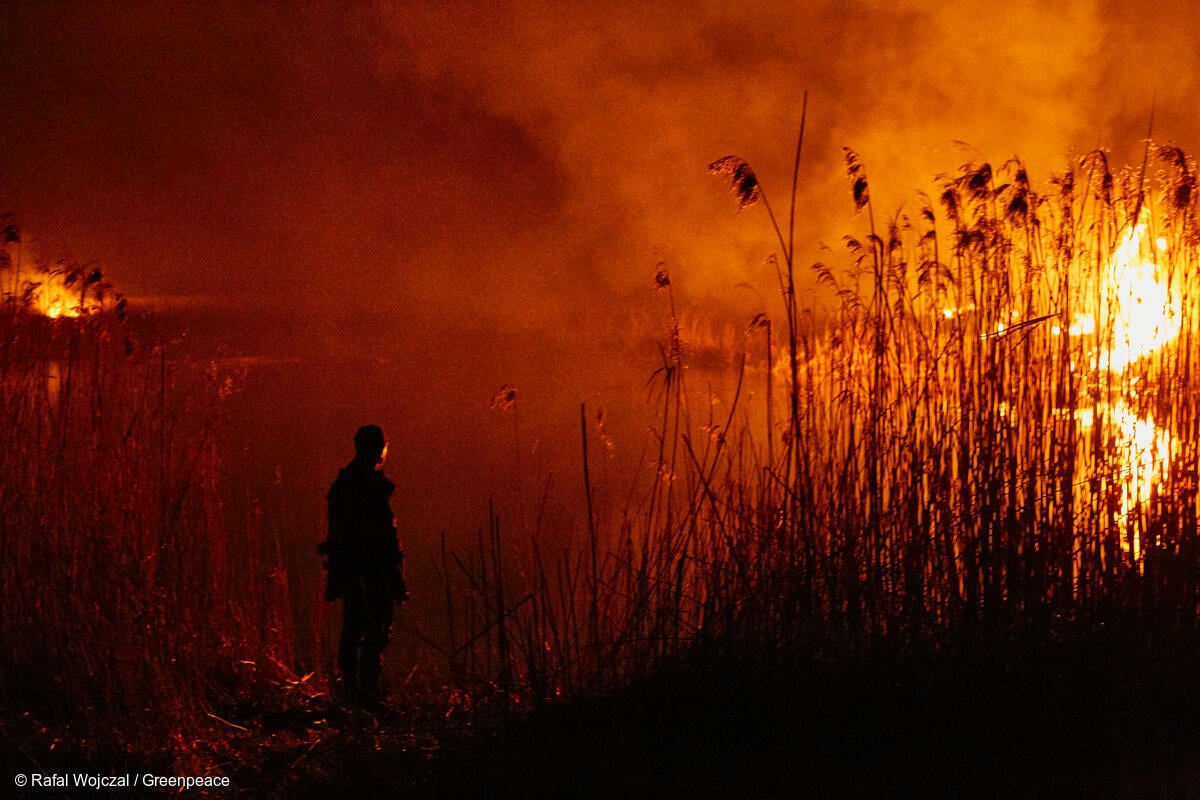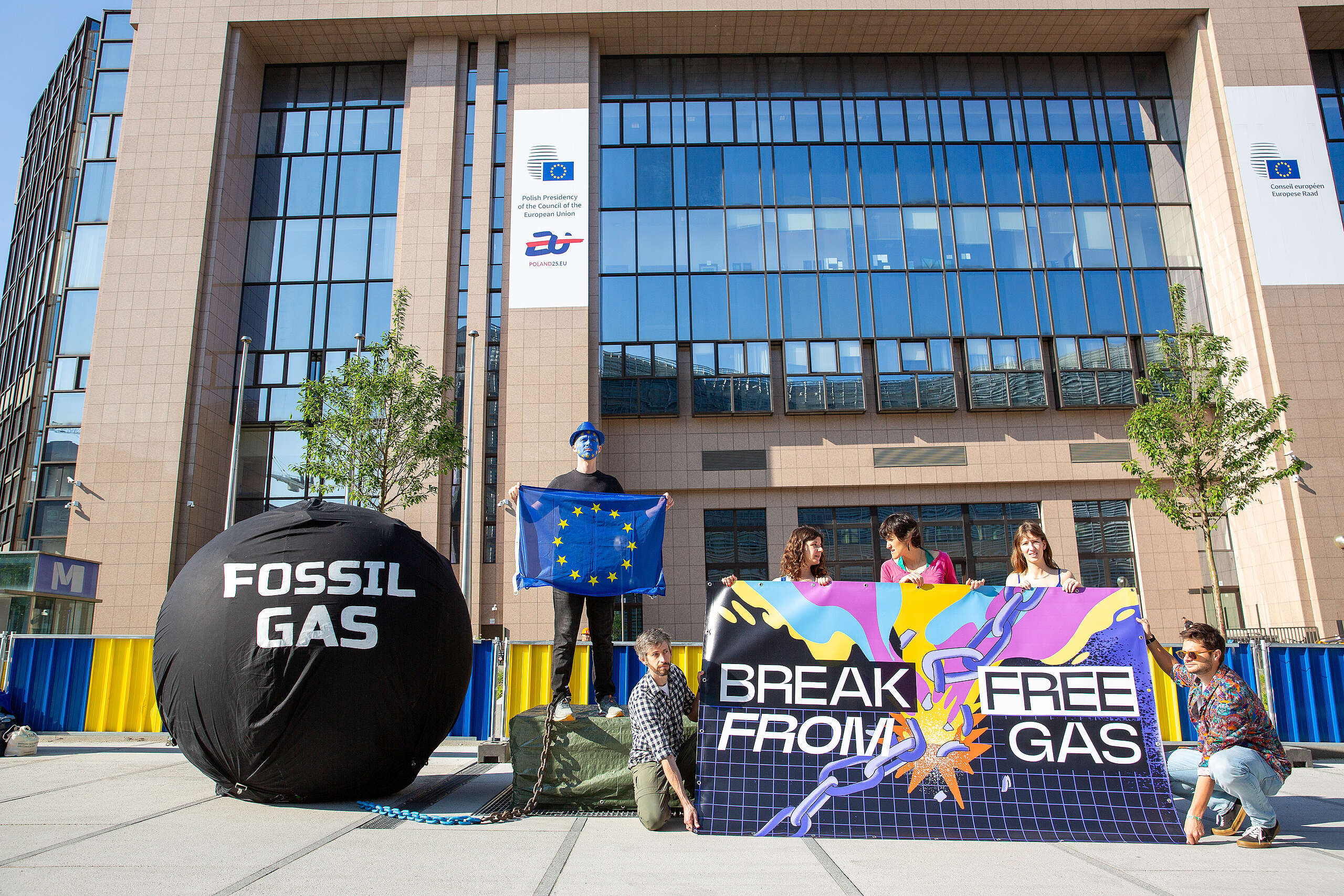Greenpeace, Transport & Environment, and Carbon Market Watch launch airline bailout tracker

Brussels – European airlines – some of the European Union’s biggest polluters – have sought an unprecedented €12.8 billion in government bailouts since the beginning of the Covid-19 crisis, without binding environmental conditions, according to data compiled in a new airline bailout tracker published today by Greenpeace, Transport & Environment, and Carbon Market Watch.
Greenhouse gas emissions from aviation reached record levels before air travel came to a sudden halt in March. Airlines are keen to avoid any conditions attached to public support. So far, no binding and significant environmental conditions have been attached to agreed bailout plans. Austria has set a binding but limited one-year ban on the payout of dividends.
By 21 April 2020, European airlines – such as easyJet, Scandinavian Airlines and TUI Group – had already been granted financial support amounting to €3.36 billion, with €9.47 billion under discussion for other airlines. The amounts being negotiated for bailout plans and recapitalisation may grow further as talks for some of the biggest European airlines, including Air France, KLM, Lufthansa, British Airways and Alitalia, are ongoing.
Many more European airlines are currently negotiating bailout plans. The information in the tracker, which is based on publicly available data, will be regularly updated.
Greenpeace EU Covid-19 spokesperson Faiza Oulahsen said: “Public bailouts must come with strict conditions to protect jobs and slash the aviation sector’s soaring contribution to climate breakdown. Short-haul flights have to become a thing of the past and this money should help airline workers to reskill. Any public funding should lay the foundation for a just and green transition for people and planet, with widespread investment in transport alternatives like trains. Governments must address both the economic impacts of the Covid-19 crisis and the crisis we face in climate change.”
Transport & Environment aviation manager Andrew Murphy said: “Airlines are seeking public money so they can get back to the business-as-usual of soaring emissions enabled by light-touch pollution laws and tax exemptions. It’s time to ensure that aviation makes a green transition by linking aid to taxes and greener fuels which will reverse the sector’s rapid emissions growth.”
Carbon Market Watch policy officer Gilles Dufrasne said: “It’s time governments stopped throwing money at one of the biggest polluters without expecting anything in return. Airlines benefit from massive tax breaks and free pollution permits under the EU’s carbon market. This has allowed them to generate large profits, and now they are asking taxpayers to shoulder the losses. The pollution from flying is likely to rebound fast once the pandemic is over, and the aviation industry must start paying for the climate damage it causes.”
In one recent example of the attitude of airlines to public support, easyJet’s founder received €69 million in dividends just two weeks before the company secured a €690 million loan from the UK treasury and the Bank of England. Meanwhile, staff at the bailed-out airline have been put on two months unpaid leave.
In a rare exception, Austrian transport minister Leonore Gewessler responded to a request for public support by Austrian Airlines (part of the Lufthansa group) by saying that any bailout should be linked to climate targets. A final deal is yet to be agreed.
Aviation has been one of the fastest-growing contributors to greenhouse gas emissions at every level (global, regional and local) over the last two decades, with a 26% increase in emissions in the EU over the past five years alone.
Over the past five years, seven European airlines have each earned over €1 billion in net profits. Five of these companies have requested or have received government support: IAG, which owns British Airways (€9.37 billion ), Lufthansa group (€8.17 billion), TUI group (€3.09 billion), Easyjet (€2.39 billion), AirFranceKLM (€1.05 billion). The 20 largest airlines (based in the European Economic Area and the UK) have earned a combined total of at least €33 billion in net profits over the past five years, while not paying fuel taxes or VAT on flights.
The aviation sector has depended extensively on public support for decades — from tax exemptions from VAT and kerosene tax, to state aid for airports, low-cost airlines and infrastructure linking airports with nearby cities. Airlines also get 85% of their allocated pollution permits for free under the EU’s carbon market. The kerosene tax exemption in Europe alone is valued at €27 billion a year. Other more sustainable transportation methods — such as rail — have not benefited from such generous tax treatment.
– ends –
Contacts:
Faiza Oulahsen – Greenpeace EU Covid-19 spokesperson: +31 (0)6 523 914 28, [email protected]
Mark Breddy – Greenpeace EU head of communications: +32(0)496 156229, [email protected]
Andrew Murphy – Transport & Environment: +32 48500 12 14, [email protected]
Nico Muzi – Transport & Environment communications director: +32 (0)484 27 87 91, [email protected]
Gilles Dufrasne – Carbon Market Watch policy officer: +32 491 91 60 70, [email protected]
Kaisa Amaral – Carbon Market Watch communications director: +32 485 07 68 90, [email protected]



